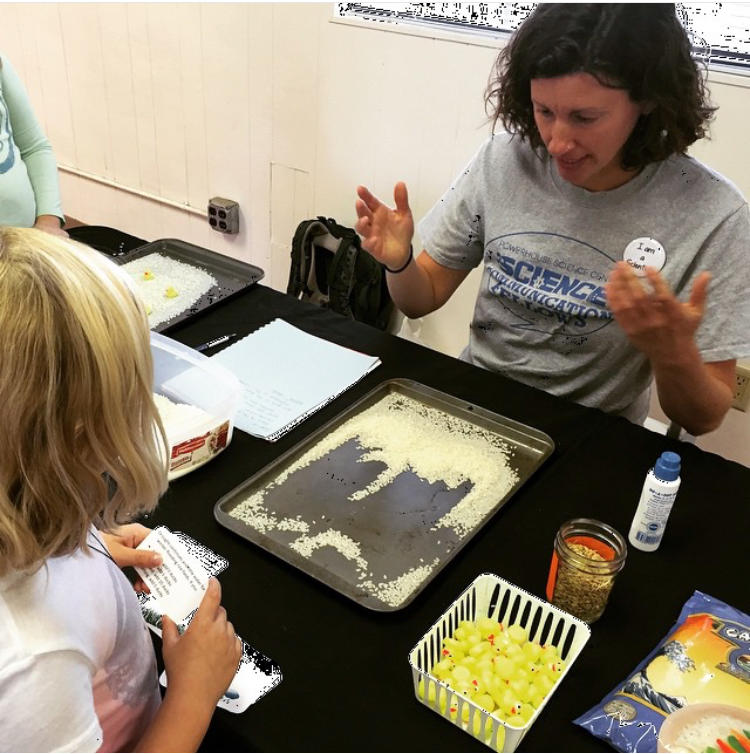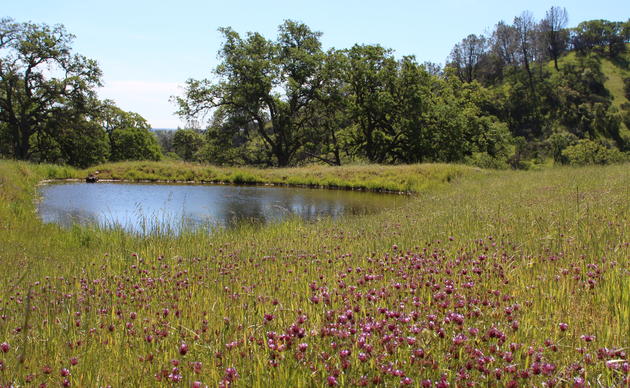
When I talk about my work I am usually speaking with other scientists, researchers, or environmentalists. I don’t need to explain the relevance of my work in these situations. But what happens when I talk to the public? How should I describe my work to plumbers, bankers, or teachers? How do I compel them to care about conservation?
I participated in Discovery Museum Science and Space Center’s Meet a Scientist Day this past Saturday. It marked the end of my involvement with the Center’s Science Communication Fellowship, which trains researchers and scientists to explain their work to the broader public. Over the course of the afternoon, children, and adults filtered through the museum to explore hands-on, tabletop demonstrations that made complex topics easy to understand.
The purpose of my tabletop activity was to explain how climate change puts bird habitat created by rice farmers at risk. I created a game of chance where kids first chose a farmer card that told them how to manage their rice field (cookie tray with rice) after harvest. This affected the food (rice) left in their field and the number of birds (micro rubber duckies) that used their field. Then each kid selected a weather card that illustrated how weather can impact the amount of food and water available for birds. It was great to see the kids’ faces light up with recognition as they observed what big differences the weather can make. The adults liked it too and commented how much they learned from the activity.
The Discovery Science Museum is a dynamic regional hub that engages and inspires people of all ages to explore the wonders, possibilities, and responsibilities of science. The museum is part of the Portal to the Public National Network, which brings scientists and public audiences together in face-to-face interactions that promote appreciation and understanding of current scientific research and its applications. The Science Communication Fellows program is one example of this work. Fellows participate in a three month program where they learn to educate and inspire people of all ages about the wonders, possibilities, and the responsibilities of science and its related fields. Learn more at http://www.thediscovery.org/
By Khara Strum
Support Bobcat Ranch
Your gift supports our work to develop & promote bird-friendly cattle ranching practices in CA and to protect and restore native grassland habitat for birds.




